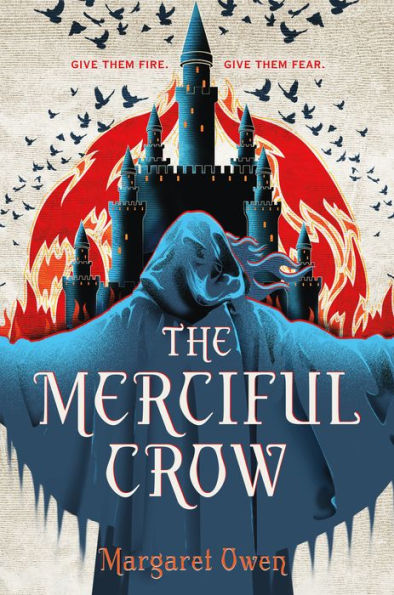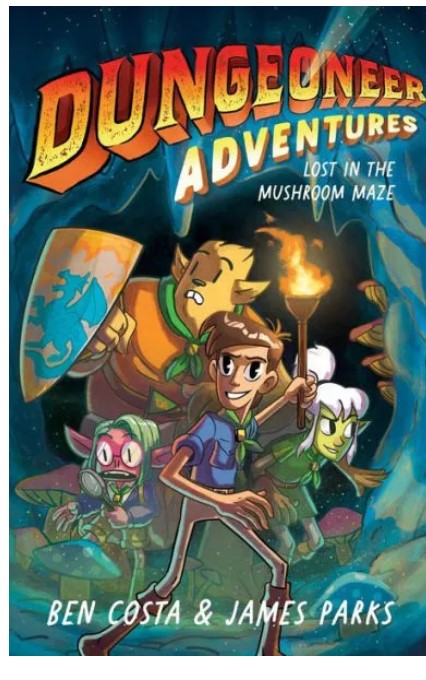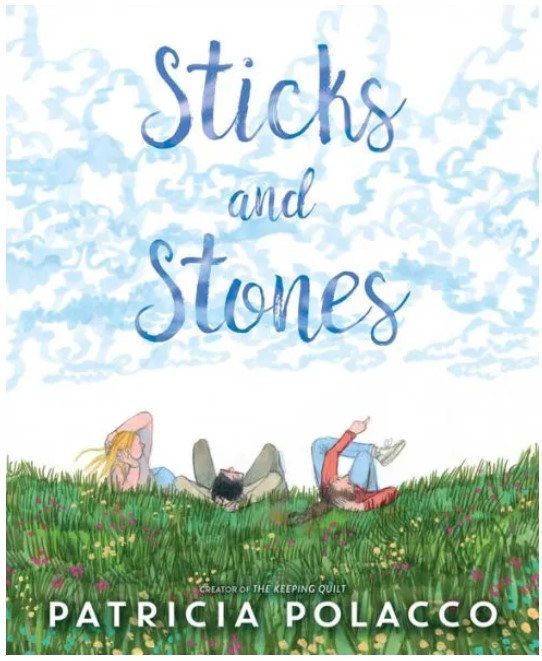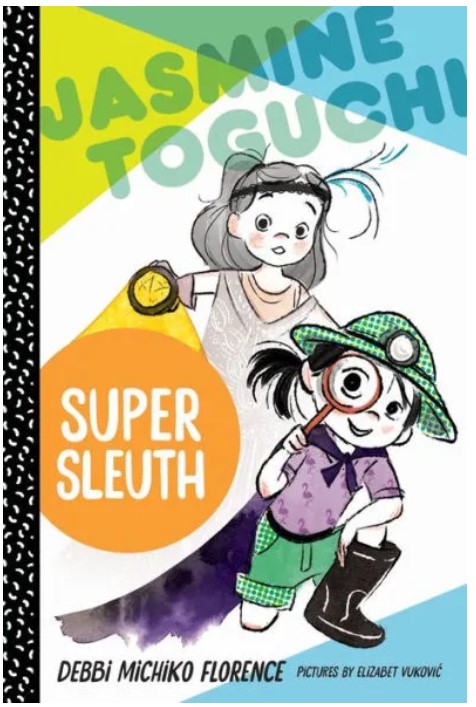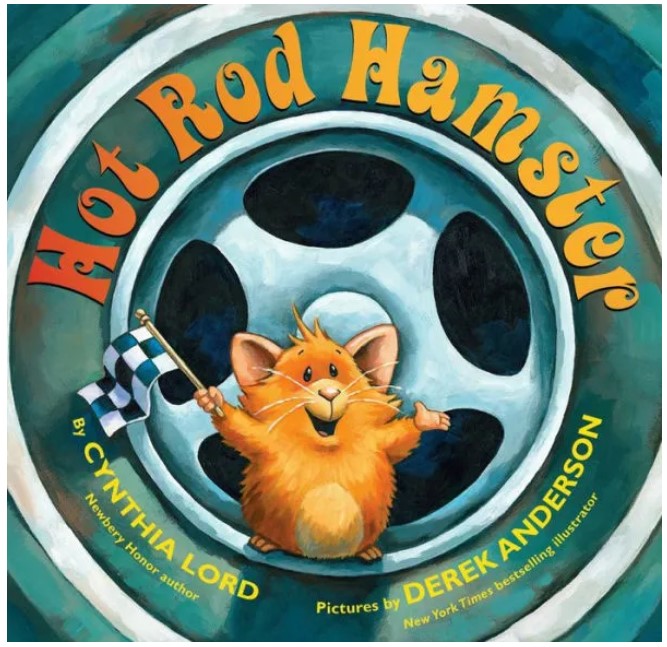In the world of Sabor, the Phoenix Caste reigns supreme, the Hawk Caste does their best to maintain the peace, and the Crow Caste are scorned by all. Fie, a future Crow chief, is a teenage girl who’s roped into helping the Crown Prince Jasimir and his body-double Tavin. Together, all three must outrun Queen Rhusana’s expert trackers and killers.
But what’s supposed to be an easy journey to deliver the Prince into an allied governor’s hands quickly turns into much more than Fie or the rest of her Crows ever expected. Hunted by Queen Rhusana’s handpicked trackers, the Vultures, Fie must summon everything she has to outwit and outrun her pursuers. The conflicts only get harder as she begins to fall in love with Tavin, a love that shouldn’t be possible.
From the moment the book begins, it’s an endless adventure that never fails to deliver on the harrowing journey Fie must undertake. With the class-based society Sabor revolves around, the Crows (Fie’s caste) are universally snubbed and hated by the other castes. This is a theme that hits the reader on the head throughout the story. Despite this, Fie, Jasimir, and Tavin are likable protagonists that help to anchor the story.
While the story is similar to Romeo and Juliet, Owen manages to keep The Merciful Crow fresh. The easy-to-read story is written with wonderful pacing that will keep the reader gliding through each chapter. With a good blend of fast-paced action and romance, the book will hook the reader from the beginning until the very end. The Merciful Crow has several surprises and fun twists that add to the quick scenes. Fie’s relationship with Tavin is also a highlight as the two use the journey to grow both as people and as lovers. While the characters feel underdeveloped at times, they are still fun assets to the story.
The Merciful Crow will delight those who want an action-based adventure story set in a troubled fantasy world. The story features a strong female protagonist and has a theme of fighting against prejudice in a hateful world. Even though the plot is not unique—the main protagonists are forced to journey together and eventually fall in love—The Merciful Crow is a fun tale because of the mix of action and love. The Merciful Crow would be a great addition to any young reader’s bookshelf.
Sexual Content
- Madcap, a Crow, belted “another lewd and anatomically improbable verse of ‘The Lad from Across the Sea’” when dancing with Fie. Madcap is the only Crow with lewd songs, and he sings them another 2-3 times. The actual words of the song itself are never specified.
- When Fie uses her magic and sees visions of the past. She sees “a lover waiting in the amber-pod gardens”.
- Fie reminisces about the past when she thinks, “She might have softened her tongue for Hangdog long ago, when the two of them slipped away to more private groves.”
- When Tavin is trying to distinguish Fie’s preferences, “Madcap made a crude gesture that suggested exactly what they thought Fie trucked with.”
- When bantering with Tavin, Fie says, “Wager I’ve spent more nights ready to die for my kin than you’ve spent rolling palace girls.” She uses this against Tavin a few more times, often to catch him off guard.
- Hangdog gets angry at Fie’s relationship with Tavin: “Just because he can’t rut his own women out here doesn’t mean he’s welcome to ours.” Hangdog consistently berates Fie and Tavin in this way. He confronts Fie again: “You’re only good to his kind on your knees.”
- Another Crow asks of Fie (when it’s only her, Jasimir, and Tavin), “You a-feared of getting with child, too?”
- Speaking about the Swan Caste: “Swans don’t rut inside the caste…At least, not to conceive.”
- While wanting to take a bath in a river, Fie thinks, “stripping down in front of lordlings didn’t sit right.”
- When waking up to find Tavin had gone to wash up in a hot spring, Fie thinks, “The notion of Tavin washing up in a hot spring had an entirely different effect on her.” Jasimir notices Fie’s obvious desire, and says, “I’m not utterly oblivious…But you’re only going to get hurt.”
- On watch duty with Tavin, Fie kisses him. “He didn’t kiss her back so much as drown himself in her.” She reminisces, as she and Tavin strip down to sleep with each other, that “Before, when she’d lain with Hangdog, it had been matters of urgency, a hasty exchange of services.” She goes on to say, “Tavin too moved with urgency, but it was a curious kind, a need to discover every place that made her shiver…” Afterward, Tavin explains why he never wanted to get anyone pregnant, saying, “Gender’s never mattered to me, but I-I didn’t want to get anyone with child.” This scene takes place over multiple pages.
- When tempers flare between Jasimir and Tavin as they’re being chased, Jasimir says in regards to Fie, “My condolences if that conflicts with who you want in your bed this week!”
- Tavin kisses Fie before sacrificing himself to become a decoy. “He pulled Fie to him and pressed a swift, soft kiss to her mouth.”
- When traveling with only Jasimir, Jas says, “Don’t tell me you’re worried that I’ll get you with child.”
- When Tavin’s mother asks if anyone has something to say, Fie says, “Tavin and I slept together…Since you’re asking.”
- When speaking about his father and mother to Fie, Tavin says, “…he’d been drunk enough to command Mother to his bed while Aunt Jasindra was still at the reception.”
- After coming to terms with each other, Fie says to Tavin, “If I’d known I’d rutted a half prince, probably I would’ve bragged about it more.” Once made up, Tavin “kissed her back, careful at first, then spiraling into dizzy, feverish glee…” Eventually, Fie manages to say, “My room,” telling Tavin to sleep with her again. This scene happens in two pages.
- When Tavin and Fie are say goodbye to each other at the end, Tavin “opened his mouth, shut it again, and, without a word, pulled her into a long, hard kiss.”
Violence
- The very first line of the book is, “Pa was taking too long to cut the boy’s throats.” Because of a plague running rampant in Sabor, the Crow Caste – being the only caste immune to the disease – end up being called to mercy kill the plague victims before the plague overcomes the victim. This type of scene is brought up again. In another scene, Fie thinks about what would happen if they didn’t kill the victims. “Two weeks in, the dead would be piled up, the crops blackening in the fields.” When Pa proceeds to kill a plague victim, “There was a savage jerk. The sinner died smiling.”
- The sight of blood is frequently shown. For example, “Damp red streaked down the front of Pa’s robes. He’d dealt a mercy killing, then.”
- After bringing the supposedly dead prince out to the cart, Fie wonders “if Phoenix boys burned like any other sinner.” Fie then notices, “Death-stink hadn’t settled on the boys yet, but she still flinched at the crimson stains on their shrouds.” Fie “didn’t intend to punch the boy, but she did all the same.”
- When Hangdog tries to touch Tavin, he found himself “standing stone-still as a sword point strummed the skin beneath his chin.”
- When discussing the Crow’s mercy killings, Pa asks Jasimir, “You ever listen to a child die by fire?”
- When Hangdog, Fie’s former lover and a fellow Crow, attempts to betray the Princes, “An arrow sank, soft and immediate, into Hangdog’s eye.” Hangdog dies, and the Crows (not including Fie, Tavin, and Jasimir) are taken hostage. A Vulture witch tells Fie, “Oldest woman in your kin, caught a few too many arrows from us on the bridge.” That woman is Wretch, and she survives the wounds. After Viimo, the witch, tells Fie about Wretch, Fie destroys Viimo’s hands. “One moment Viimo’s hands were hands; the next they were a tangle of raw red flesh and tattered skin.”
- When dealing with more hate from a Sparrow butcher, Tavin uses his magic to boil the man. “The butcher crumpled, screaming, as blisters boiled over his blackening flesh.”
- As Fie, Tavin, and Jas are ambushed, “The rest was a frenzy of noise, steel, and blood. One body fell, then another—”
- Fie gets angry with Jasimir, “Then she slapped the prince.” To stop Jasimir from giving their position away, Fie tackles Jasimir to the ground and “Fie flipped the broken sword and leveled its jagged, trembling point to Jasimir’s right eye.”
- When attacked by ghasts, Fie attacked the creature with the broken sword: “It sank to the hilt without a sound, but the flesh round her throat stayed iron-solid.” When Jasimir kills an Oleander in the same scene, “Steel flashed, a thorn darting through torchlight.”
- While fleeing the Vultures sent by the Queen, Fie and Jasimir are shot at, “Then an arrow sailed over her head and into the trunk of a ghost tree.” Another arrow later hits Fie. “She didn’t feel the arrow when it buried itself in her thigh.”
- When Fie confronts Tatterhelm and the Vultures chasing after her and Jasimir, they fight. “He slammed her into another wall.” This scene takes place over several pages.
Drugs and Alcohol
- Fie “smirked up at him, a little jump-drunk from swinging betwixt fear and relief.”
- When Jas teaches Fie to write letters, she thinks “hers were overlarge and tilting like a drunk.”
- After hiding from an ambush, Fie and the others find “The supplies they’d abandoned were knocked about the clearing as if a drunkard had bumbled into them…”
Language
- At the very beginning, Fie says, “Twelve hells,” a saying that pops up very frequently throughout the story.
- When finding the stray cat, Pa says, “Covenant’s crap she is, Fie, but we’ll talk your share later.”
- When they first meet, Wretch calls Tavin and Jasimir “royal louts.”
- Tavin says, early on, “The damn patchouli, that’s what she called it.” Damn pops up occasionally in the book.
- Hangdog calls Prince Jasimir a “piss-baby.”
- Jasimir calls Fie a “bone-thief,” a slur aimed at Crow witches. This pops up occasionally in the book.
- Hangdog, getting mad at Jasimir, says, “When was the last time your powdered ass set foot off the palace grounds?” Ass is used occasionally in the book.
- An Oleander, a hunter of Crows, calls Fie’s band “filth.”
- Fie calls Tavin a “bastard boy.” Bastard is used occasionally in the book. Part Three is titled: “Bastards and Gods.” Soon after, as Tavin tries to help her down from a tree, Fie tells him to “get scummed!”
- Master-General Draga called King Surimir, “gilded dung.”
- Viimo tells Tavin to “Choke on horseshit.”
- Jasimir tells Fie after they lose Tavin, “Fuck the oath!”
Supernatural
- War-witches are witches meant specifically for battle. Fie thinks, “King Surimir fancied the war-witches as his palace guards, warriors who healed wounds just as easily as they tore their foes apart from within.” Tavin is considered a war-witch due to his Hawk caste standing and his job as Jasimir’s bodyguard.
- Fie thinks about how she and Hangdog had “both been born witches, and for Crows, that meant they were born to be chiefs.” There are only as many witches as there are dead gods, meaning only a thousand are spread throughout Sabor. Witches and magic pop up as the main premise throughout this book, and come in and out of the story very fluidly. Characters like Fie, Hangdog, Pa, Tavin, Viimo, and others unnamed use magic.
- Fie and other Crow witches use people’s teeth to produce their magic. The teeth allow the Crows to access the Birthrights of the other castes – the special abilities the thousand dead gods once handed down to the people of Sabor. This happens frequently throughout the book, mostly through Fie.
- Birthrights aren’t specifically mentioned as magic, but they are used in the same way. For instance, the Vulture caste members that are after Fie, Tavin, and Jasimir use their Birthrights alongside their own magic to track the trio. Birthrights are a major theme in the novel, as they call back to the caste system present in Sabor.
- The Vultures use their magic at some point to create ghasts. Ghasts are essentially the undead. Hangdog’s corpse is eventually used against Fie in the final part of the book.
Spiritual Content
- Throughout Sabor, a plague is present. People who come down with the plague are called “sinners.” For example, when Fie and Hangdog go to bring out the sinners at the beginning of the book, Fie thinks, “The steward had called the sinner ‘boys’ when he led the Crows in.” This happens frequently, whenever a plague victim is seen of mentioned.
- The “thousand dead gods,” (or just “dead gods”) are mentioned frequently throughout the book. An early example: “But by the thousand dead gods of Sabor, Fie wagered they were starting to catch on now.” Fie thinks of a saying, “Dead gods be kind.” Very few of these dead gods are mentioned by name.
- There are shrines the Crow Caste stops at throughout Sabor. These shrines are dedicated to their gods. For example, “The scattering of huts and god-grave shrines by the road eventually yielded to the twist-trunked, lichen-shawled forest.” These shrines pop up frequently, both literally and in conversation.
- The dead gods gave out the Birthrights – special abilities given to each Caste. For instance, the Phoenix Caste (the ruling caste) was given the Birthright of fire, which allows them immunity to burning or fire-based injuries. Each Caste’s gods handed out Birthrights to their Caste, save for the Crow Gods. “She wondered, too much, why the Crow’s gods had left them no Birthright at all.” Birthrights come up frequently throughout the book.
- Some Crow Gods are named early on when Fie and her Crows stop at a shrine. “Loyal Star Hama guarding sleeping crows, Crossroads Eyes leading them away from treacherous roads, Dena Wrathful and her hundred-hundred teeth.” Wretch, a Crow, “set on a new walking song, a marching hymn to the dead god Crossroads-eyes.”
- A Phoenix dead god is named “Ambra, Queen of Day and Night, stood astride the sun, wreathed in gold Phoenix fire.” Fie uses her name against Jasimir saying, “But Ambra help me, you leave who’s bedding out of it, or I swear to every dead god—”
- It’s mentioned that the “Swan caste had only three dead gods.”
- It’s thought that every witch in Sabor is the reincarnation of a dead god. Madcap called Fie, “Little Witness: the dead Crow god,” when she was younger.
by Jonathan Planman
